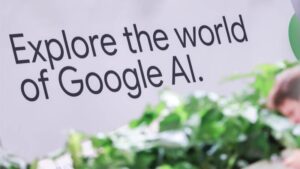Recommendations for the U.S. AI Action Plan from Google

The Transformative Power of AI in Modern Society
Artificial intelligence (AI) represents more than just a technological advancement; it signifies a new way of making significant advancements across many fields, particularly in healthcare, scientific research, and economic shifts. As we witness these changes, it’s crucial to harness the potential of AI effectively.
The Role of AI in Healthcare and Science
AI is already making remarkable strides in revolutionizing healthcare. From improving diagnostics to personalizing treatment plans, AI tools are aiding medical professionals in providing better patient care. Additionally, AI accelerates the pace of scientific discovery, helping researchers analyze vast datasets and make connections that would have been difficult or impossible to identify manually. This efficiency can lead to breakthroughs in drug development, disease prevention, and numerous other areas.
Economic Implications of AI
The economic effects of AI are profound. Businesses can improve productivity through AI-driven automation and data analytics. According to a report from McKinsey, generative AI alone has the potential to add trillions to global productivity. It’s essential, therefore, that the right policies are put in place to support this technological shift and position the U.S. as a leader in the AI sector.
Key Policy Recommendations for AI Development
To seize the opportunities created by AI, we should focus on specific policy frameworks. Here are three vital areas for action:
Investment in AI Infrastructure
Collaboration between governments: Local and federal governments should work together to reform policies that address the increasing energy demands of expanding AI infrastructure.
Export controls: Creating regulations that protect national security while also fostering the ability to export AI services globally is essential.
Access to computational resources: American researchers need better access to advanced computational resources to facilitate groundbreaking research. This can be achieved through new partnerships with national laboratories.
- Data access: Establishing policies that preserve access to data is crucial for fair AI learning. This includes a risk-based approach to AI applications that adheres to existing regulations, preventing a fragmented set of rules across states.
Accelerating AI Adoption in Government
Government agencies should model the adoption of AI. This approach can include:
- Implementing multi-vendor and interoperable AI solutions for diverse applications.
- Streamlining procurement processes for new technologies to facilitate quicker integration of AI into public services.
Promoting International Innovation
The federal government plays a key role in promoting innovation internationally by partnering with industry stakeholders and other countries to:
- Establish market-driven technical standards through collaboration with organizations like the International Standards Organization.
- Develop protocols and benchmarks regarding the risks associated with advanced AI systems.
- Advocate against restrictive foreign AI policies that could hinder American leadership in the field.
Embracing the AI Opportunity
As noted by Vice President Vance, this is an unprecedented moment to leverage AI for the greater good. The potential for AI to positively impact lives around the globe is vast, and it is our responsibility to capture this opportunity.
The choices made today regarding AI policy will have lasting implications for global competition in this arena. A proactive, innovation-focused approach that balances national security with the broader benefits of AI will enable society to realize its transformative potential. Organizations like Google are committed to collaborating with the government to ensure the successful implementation of AI initiatives, working collectively towards a future that embraces this revolutionary technology.






